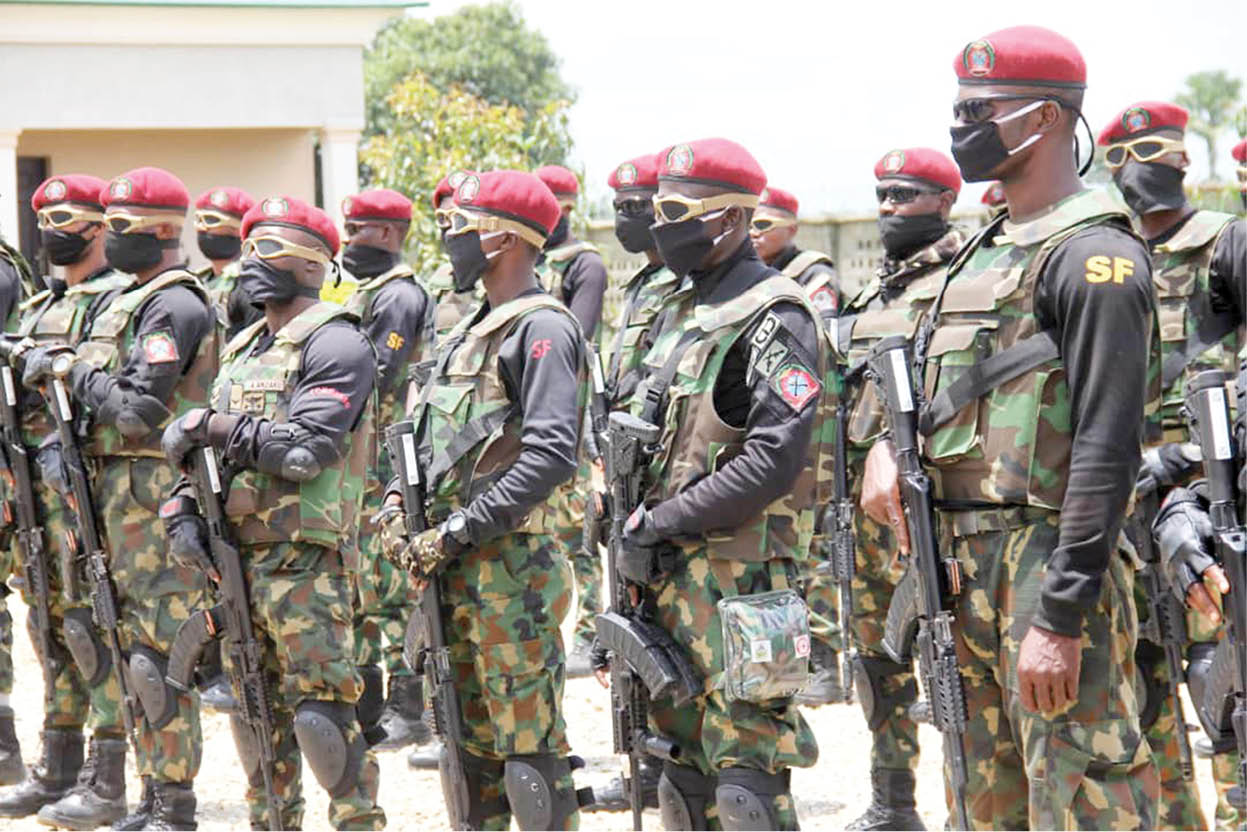Insecurity: Air Force trains 112 Special Forces in Bauchi
The Nigerian Air Force has trained an additional 112 special forces personnel in its bid to boost the capacity of officers and airmen to combat terrorism, banditry and other forms of criminality across the country. In his remarks at the graduation ceremony in Bauchi on Friday, Chief of Air Staff, Air Marshal Isiaka Oladayo Amao, […]

File photo: Men of the Special Forces Team of the Nigerian Air Force drafted to supress internal security in parts of southern Kaduna
The Nigerian Air Force has trained an additional 112 special forces personnel in its bid to boost the capacity of officers and airmen to combat terrorism, banditry and other forms of criminality across the country.
In his remarks at the graduation ceremony in Bauchi on Friday, Chief of Air Staff, Air Marshal Isiaka Oladayo Amao, said the Nigerian Air Force had grown to be a formidable force with enhanced professionalism due to regular training, acquisition of new platforms and reactivation of grounded fleets.
Amao said, “These include fixed wing, helicopters and remotely piloted aircraft. These acquisitions as well as reactivation of hitherto unserviceable platforms have improved the serviceability status of our aircraft. With regards to training, 98 pilots and UAV operators have been winged within the last year.
“Other areas that have received significant capacity development boosts include aircraft engineers and technicians as well as ICT, K-9, criminal investigation, education, administration and medical services professionals, amongst others. All these have contributed to boosting our successes in the various theaters of operations.
“However, this has pre-disposed our air assets, Bases and personnel as prime targets for insurgents’ attacks. Such attacks would not only undermine our efforts to fight as a Service but also diminish our capacity to contribute effectively to joint operations.”
He told the graduands that they would be engaged from time to time, given the level of security threats facing the nation.
Speaking earlier, the Air Officer Commanding Ground Training, Command Air Vice Marshall I O Daramola, disclosed that the curriculum of the courses entailed weapon handling, swimming, unarmed combat, and small team tactics amongst others.
Daramola explained that the course was made tough to ensure that trainees can withstand the grueling physical conditions of ground operations.
